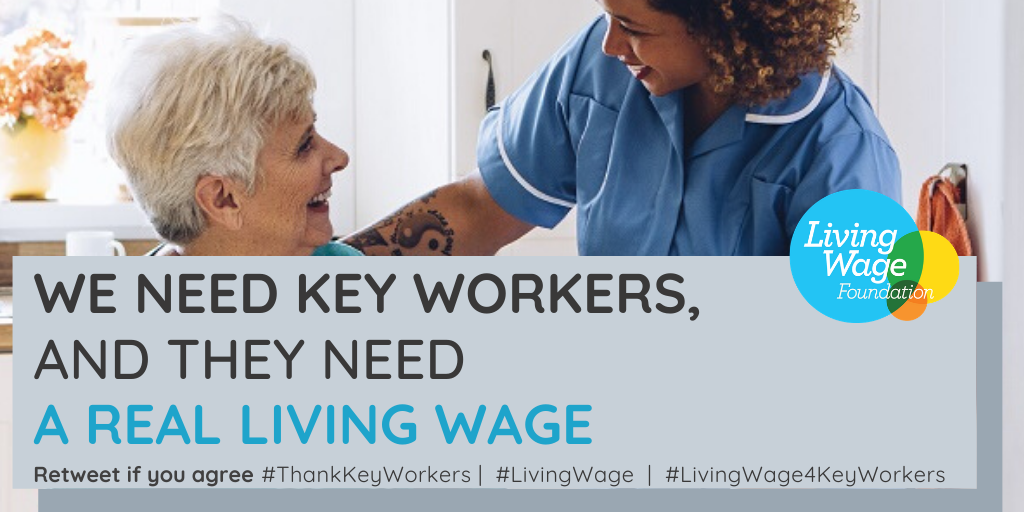Living Wage Foundation Katherine Chapman writing in the Mirror.
If the past few weeks have shown us anything, it is that we are more dependent than ever on those who work in a few key jobs, far too many of which are low paid and insecure. As a nation, we have come together - albeit from a safe distance - and recognised the critical importance of those on the front line of public health - particularly those working in hospitals and the NHS. This past week, the spotlight has rightfully shone on care workers, a sector that is facing significant challenges.
There are around 900,000 frontline care workers in the UK, disproportionately composed of female and BAME workers, one third of which are parents with their own caring responsibilities. According to research conducted by the Resolution Foundation, around half of these workers earn less than the real Living Wage of £9.30 in the UK and £10.75 in London. The problem of low pay is exacerbated by widespread insecurity, with estimates suggesting as many as one-in-ten frontline social care staff are on zero-hour contracts, compared to the one-in-forty in the wider economy. The result is hundreds of thousands of care workers in insecure work, earning less than they need to survive as they support the most vulnerable people in society; all the while facing a heightened risk of contracting Covid-19.
There are substantial, everyday stresses that accompany being unable to afford bills or struggling to put food on the table. Those paid less than the real Living Wage experience significant negative impacts to their physical and mental health, as a result of these stresses. Polling conducted by the Living Wage Foundation found that a quarter of parents earning below the real Living Wage felt that low pay had affected their relationships with family and friends, and nearly four-fifths felt being paid a Living Wage would improve their mental health. In addition to the acute threat Covid-19 currently represents to care workers, low pay has been chipping away at their health for years.

The last couple of months saw the Scottish Government and Wirral Council take bold steps to support care workers, committing to uplift them to the real Living Wage - including ancillary workers such as cleaners and catering staff. The sector too has been responding, and, encouragingly, there are now over 200 care providers, such as Penrose Care and Aspire for Intelligent Care and Support, that have accredited as Living Wage Employers. These trailblazing employers have been paying their workers a real Living Wage since long before the crisis, recognising that higher pay doesn't only benefit workers, but also businesses, with lower staff turnover and absenteeism.
Care work is a huge industry with around a million workers supporting some of the most vulnerable people in society, often for incredibly low pay. For too long, its importance has been undervalued and underfunded. But now, there is a real opportunity to create lasting change in the sector. As we emerge from this crisis, we must look again at how we value this work, and how we pay for it. It's time to rethink how government, public bodies and businesses work together in order to bounce back better, and to ensure that there is adequate funding so that all care work is rewarded with, at least, a real Living Wage.
